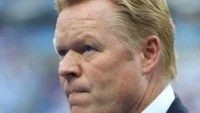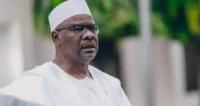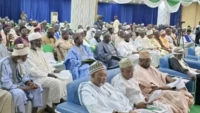On Tuesday, October 15, 2024, Nigerians were met with a startling announcement. The World Bank’s Senior Vice President, Indermit Gill, declared in Abuja that President Bola Tinubu’s economic reforms would require 10 to 15 years to significantly transform Nigeria’s economy. He advised the Federal Government to persist with these reforms despite the current challenges facing the nation.
Speaking at the Nigeria Economic Summit, Gill emphasized that Nigeria’s oil wealth, meant for the benefit of all citizens, had long served only a select few elites. While he acknowledged that these elites are now affected by the reforms initiated last year, he noted that they had previously built substantial financial buffers. However, he expressed concern that ordinary Nigerians were facing even greater hardships, compounded by past policies. He urged Nigeria to “stay the course” for the next decade or more, arguing that despite the difficulties, the potential rewards were substantial.
This message from the World Bank did not sit well with many Nigerians, who rejected the suggestion outright. Citizens from various walks of life warned President Tinubu that adhering to the World Bank’s advice could lead to mass unrest. They argued that the institution’s recommendations have historically failed to deliver sustainable economic growth, prosperity, or improved living standards in Nigeria and other countries.
Prominent Nigerian academic, Professor Moses Ochonu of Vanderbilt University, voiced a stark warning. He cautioned that Nigeria might be on the brink of a societal breakdown due to the prolonged suffering caused by these reforms. Professor Ochonu stated that enduring another 10-15 years of hardship was “humanly impossible” and that it could lead to a severe backlash. He highlighted the dire choice facing Nigerians: slow death by hunger or heroic death through social upheaval. He urged President Tinubu to change course and avoid this predicted catastrophe.
Ochonu also criticized the World Bank’s approach, describing it as a pattern of imposing harmful reforms on developing nations whose leaders rely on loans to sustain mismanaged budgets. He argued that this dependency allows the World Bank, a distant and indifferent institution, to dictate policies that exacerbate poverty rather than alleviate it.
The tension in Nigeria is palpable as citizens call on their leaders to reconsider these economic policies and prioritize the well-being of the people over international prescriptions that seem out of touch with the daily struggles of ordinary Nigerians.










I dont get why Nigerians are so quick to dismiss the World Banks advice. Maybe its time to consider all perspectives.
I think Nigerians should give the World Banks economic reform a chance. Change can be uncomfortable, but it might lead to positive outcomes.
Maybe Nigerians should give the World Banks reform a chance before jumping to conclusions. Change isnt always bad, right?
Change can be good, but lets not ignore past failures. Nigerians have valid concerns.
I think Nigerians should embrace change and give the World Banks economic reform timeline a chance. Unrest wont solve anything.
I dont get why Nigerians are so against the World Banks economic reform timeline. Maybe its worth considering the long-term benefits?
I think Nigerians should embrace change for progress, even if it means some unrest. Stability is not always the answer.
I think Nigerians should give the World Banks economic reform timeline a chance. Unrest wont solve anything. Lets be open-minded.
I dont get why Nigerians are so against economic reforms. Maybe its time to shake things up and see what happens.
Maybe try understanding their perspective before dismissing it so easily.
I dont see why Nigerians are upset about economic reforms. Change is necessary for progress. Lets give the World Bank a chance!
I think Nigerians should embrace change and trust in the World Banks economic reform timeline for a better future. #ProgressOverProtest
I think Nigerians should consider giving the World Banks economic reform timeline a chance. Unrest isnt the answer.
I think the World Bank should listen to Nigerians and adjust their timeline. Unrest is a serious warning sign! #ListenToThePeople
I think Nigerians have the right to reject the World Banks timeline. Unrest might be a wake-up call for change.
I think Nigerians should give the World Banks reform timeline a chance. Change is hard but necessary for progress.
I think Nigerians should give the World Banks timeline a chance before jumping to conclusions about possible unrest. Lets stay open-minded!
I dont get why Nigerians are so against the World Banks reforms. Maybe they should give it a chance before jumping to conclusions.
I believe Nigerians should embrace change for progress. Unrest wont solve anything. Lets give the reforms a chance!
I think Nigerians should give the World Banks timeline a chance. Unrest wont solve anything. Lets see how it plays out.
Unrest often leads to change. Sometimes, waiting isnt the answer. Action can bring results.
I think Nigerians should give the World Banks reform timeline a chance. Change is needed for progress, even if its uncomfortable.
I think Nigerians should give the World Banks economic reform timeline a chance. Change is uncomfortable but necessary for progress.
Change for whom? The World Banks track record isnt exactly stellar. Proceed with caution.
I think Nigerians should embrace change for progress, even if it means temporary unrest. Sometimes chaos leads to growth.
I think Nigerians should give the World Banks economic reform a chance before jumping to conclusions about possible unrest.
Maybe the World Bank should listen to Nigerians instead of imposing reforms from afar.
I think Nigerians have the right to question the World Banks agenda. Unrest can be a catalyst for change. #PowerToThePeople
I think Nigerians should give the World Banks economic reform a chance before jumping to conclusions about possible unrest.
I think Nigerians should give the World Banks economic reform timeline a chance before jumping to conclusions about possible unrest.